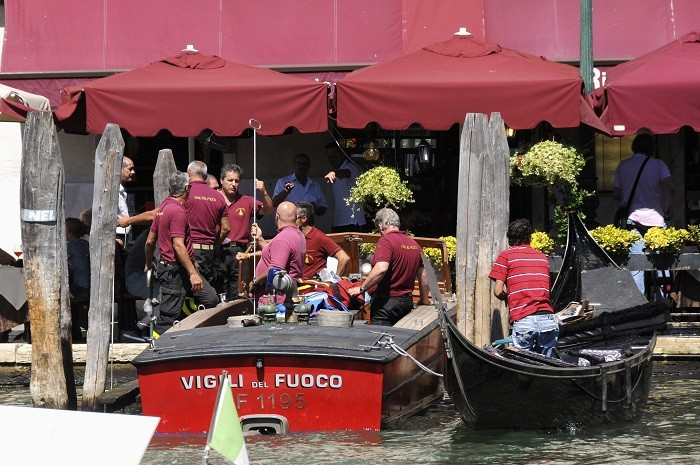German Tourist Killed in Gondola Crash on Venice's Grand Canal

There has been a death in Venice, as a German man was crushed between a gondola and a ferry on the famous Grand Canal.
The 50-year-old is believed to have become trapped between the two vessels near the Rialto Bridge, according to a Venice fire brigade spokesman.
Emergency medical staff tried to resuscitate him but he died in hospital shortly after the accident.
The German tourist, identified as a criminal law professor, his wife and three children and the gondolier all fell into the water.
His three-year-old daughter was also injured, suffering a serious injury to her cheek and was taken to a hospital in Padua for treatment. The injury is not thought to be life threatening.
The injured girl was aboard the vaporetto waterbus, which reportedly crushed the German professor against the gondola.
Venice fire chief of staff Giovanni Carlesso said the waterbus was either docking or pulled out of the Rialto stop and apparently did not see the gondola.
The force of the impact split the gondola in half, according to La Repubblica newspaper.
The area around the Rialto Bridge is one of the busiest in Venice, with traffic created by waterbuses and gondolas especially crowded during the summer months.
"I am really sad after what has happened," said Venice mayor Giorgio Orsoni.
Prosecutors have opened an inquiry into the causes of the accident, the news agency reported.
In 2011, four Spanish tourists were thrown into the water after their gondola was hit by the wake of a motorboat. In 2004, a family of Dutch tourists was also thrown into a canal.
There have been numerous complaints about the busy traffic on Venice's canals, with warnings that the safety of passengers and tourists has been put at risk. Today, there are around 500 gondolas, mostly used by tourists.
© Copyright IBTimes 2025. All rights reserved.




















